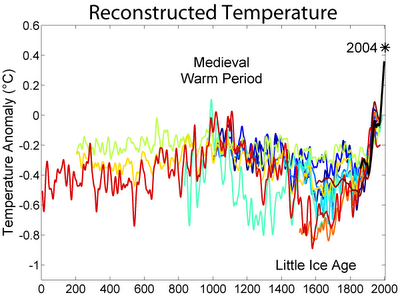James Lovelock, who angered climate scientists with his Gaia theory of a living planet and then alienated environmentalists by backing nuclear power, said a traumatized earth might only be able to support less than a tenth of it's 6 billion people.
"We are not all doomed. An awful lot of people will die, but I don't see the species dying out," he told a news conference. "A hot earth couldn't support much over 500 million."
"Almost all of the systems that have been looked at are in positive feedback ... and soon those effects will be larger than any of the effects of carbon dioxide emissions from industry and so on around the world," he added.
Scientists say that global warming due to carbon emissions from burning fossil fuels for power and transport could boost average temperatures by up to 6C by the end of the century causing floods, famines and violent storms.
But they also say that tough action now to cut carbon emissions could stop atmospheric concentrations of CO2 hitting 450 parts per million -- equivalent to a temperature rise of 2C from pre-industrial levels -- and save the planet.
Lovelock said temperature rises of up to 8C were already built in and while efforts to curb it were morally commendable, they were wasted.
"It is a bit like if your kidneys fail you can go on dialysis -- and who would refuse dialysis if death is the alternative. We should think of it in that context," he said.
And you thought erstwhile Vice President Gore was out there! Temperature rises of up to 8 degress Celsius are "already built in"? Unbelievable.
Why do I think that? Because his predictions are based on computer models. I don't mind computer models at all, but it would make a lot of sense to me if those models could, as Michael Crichton has suggested, predict global temperatures for a couple of decades straight. What good is a model if you have no way of knowing whether it's accurate?

If somebody could create a climate model that would accurately model the past I'd be happy. Say from the time of the settlement of Greenland by the Vikings through the mid 1750s -- the so-called Little Ice Age. I'd feel a lot better about those climate models if they'd just do that.
No comments:
Post a Comment